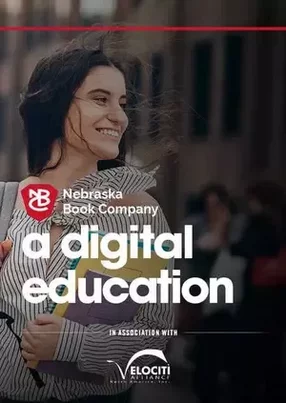Nebraska Book Company underwent a digital transformation that has revolutionised its portfolio
The use of textbooks across the education sector is facing considerable challenges. As the average student continues to spend hundreds of dollars on textbooks each year, rising prices, increased national competition and the threat of new technologies are leading traditional businesses to look at new ways to attract and retain market share.
After assuming the wholesale division of multibillion-dollar lease competitor, Follett Higher Education Group – becoming the company’s number one supplier – Nebraska Book Company (NBC) is expected to see rapid revenue growth. This is an impressive feat, but it has also brought a number of complexities to its operations.
Appointed two years ago, SVP of Operations & Strategy, Peter Grenier is responsible for running NBC’s complex supply chain, distribution center, e-commerce, data science and project management processes as the company enters a new phase.
“While we trade in textbooks, we buy from our customers and sell to the same client. We buy from bookstores and sell back to bookstores which makes it a very unique supply chain,” he explains.
“There is, therefore, an awareness of how much our markups are, the prices that we charge and the prices that we buy at. This circular supply chain puts pressure on customer service, because if you mess up the buy side, you'll lose the sale side as well. It’s very tricky.
“The student is apathetic about where the book comes from and they often only purchase it for their studies,” he continues. “So, we deal in a commodity where the customer doesn't want to buy, so price is key. We compete on the sale side and also on the buy side on price.”
With extensive experience in merchandizing and planning, Grenier has witnessed the rise of EdTech players who have sought to cater to increasing demands for digital content and open education resources. Millennial and Gen Z students in particular are looking not only at affordability, but also towards unlimited access and interactive content, placing further pressure on the standard textbook business.
“There are large online marketplaces, such as Amazon, Chegg, E-Bay, AbeBooks and Alibris, all which sell books online. There are also arbitrageurs, which are smaller companies that buy low and sell high. They stock trade books, where they just physically move them from place to place. However, those other markets help us with the supply chain,” he says.
“I can buy books from the market, sell it into the store or buy books from the store and sell it out on the market. Crossing marketplaces and industries makes the supply chain very complex, although the majority of our business is from a bookstore and back to bookstore.”
Seasonal demands
The need to find the right books at the right price, but also from the right person and at the right time has led Grenier to refer to his role as “a real hustle,” but one in which he thrives. From problem-solving and the need to be creative in the deployment of various solutions, NBC continues to look at ways to become increasingly agile to retain its market position.
Housing up to 215 permanent staff, numbers in the warehouse swell to over 300 at peak times to cater to seasonal demand. Throughout the winter months, temporary workers get up to speed on company processes, in order to become fully operational at the start of the academic year.
To accelerate its ability to train new-starters, Grenier sought to ‘temp-proof’ the warehouse by investing in updating its outdated software and implementing a number of ‘self-led’ digital tools.
“With the help of our warehouse technology partner Velociti, we have made significant improvements to the way we complete work. The digital screen walks temporary staff through the process and allows us to train them in less than 15 minutes, so they are immediately adding value. Within three days they're able to operate at roughly the same speed as a full-time employee. We needed temps to get in, get operational, and get up to speed quick,” he explains.
The company has also invested in new induction lanes from Velociti, which provide instructions at each stage, flagging books which are counterfeits or highlighting which books are new or used, for instance. NBC’s put-away-and-pick applications are also now accessed through the use of mobile technology.
“Each employee is given a mobile device and technology on their wrist to pick up a book or to put one away. Bluetooth scanners are also used. We can now pick triple the number of books processed than before. Our pack stations, called pack-to-light enable workers to scan a book; a light will then show where to put them. Over the past 11 months, we have bought in tools to completely simplify our processes.”
However, despite such advantages, many veterans with up to 30 years’ experience in the warehouse were initially reluctant to engage with such a technological shift.
“Our warehouse used to be alphabetical order, so employees had memorized where books went, for example. Now, we organize the warehouse based on demand. Like items are stored together to both managing counterfeits and meet our customers need for us to box similar books together. It was a tough transition, but most minor stuff has been nailed down.”
Use of data
With extensive experience within inventory management, wholesale, sourcing and buying patterns, Director of Analytics, Nichole Nobbman has been leading NBC’s data science team for the past six months in order to develop the company’s strengths in predicting new trends and demands.
Predicting future demand and supply in a constrained market remains complex. To drive high-quality standards across its operations, NBC’s data science team uniquely predicts what to buy, how many to buy, how much to buy it for, where to sell it and how much to sell it for.
“The data science team predict both future sale and buy prices. Some of our prices we set up to five months in advance so we have to have pretty secure and strong predictive analytics to ensure that we don't set a price that can hurt us months from now,” observes Grenier.
“We have tons of different pricing solutions for different marketplaces, buying solutions for different marketplaces, and then predicting demand so we can go out and acquire supply to match that demand.”
“We had a lot of systems that worked really well for the time that they were produced, but needed to be updated,” explains Nobbman.
“Even when we moved to computer systems it was hard to get access to a lot of data - even if you could get access, you couldn't process it in an efficient manner. However, this has changed. We’re trying to dig through all of our historical processes and move the company to modern statistical processes to optimize our sales and purchasing strategies.
“We do a lot of buyback management for stores. Rather than the store having just its list of needs, we go in and help manage the process so that they can have our list of needs as well. Then they can buy more books from the students, we manage all of the price models for that,” she adds.
Although NBC’s data remains on a mainframe, it is also housed outside of this in SQL servers, promoting accessibility. The team also utilizes SPSS modeling tools.
“My team is pretty great. Understanding the bigger picture, knowing that their work matters that is what keeps them motivated. I am a data nerd at heart, so getting to find company insights and opportunities through digging through data, you can find a lot of misperceptions; and you can solve those,” says Nobbman.
“You can find a lot of things that people never think about when you're going through the data, and that's the thing that I like about analytics. Everyone's trying to achieve the same goal.”
See also:
- An in-depth look at Service Corporation International’s trailblazing supply chain transformation
- AccorHotels: transforming procurement for a unique guest experience
- Deloitte: enabling supply chain transformation
Supporting stores
Not content with housing exceptional supply chain solutions and data analytics capabilities, NBC’s sister company, PrismRBS delivers ERP, POS, data insight, and e-commerce solutions for college, universities and campuses across the country. Additionally, PrismRBS has become the largest provider of ERP software in the industry. Able to run any sales transaction on campus, the software houses integrations from the book side into technology and inventory, making it easier for stores.
“It's better than anybody else in the industry and it continues to get better. Our number one initiative right now is to enhance the platform capabilities to expand general merchandise capabilities, online sales , and create a friendlier, easier to use solution. We’ve just launched PrismPOS 2.0, which is super cool,” explains Grenier.
“Through our e-commerce services, we also own a company called Campus Book Rentals, which is an online direct-to-student site similar to Barnes and Noble, which is also a growth portion for us. It’s interesting due to how many places we have operations to be able to provide, supply and generate demand for books.”
Additionally, NBC’s two consulting services provide further revenue streams. Known as the number one store design firm in the industry, Campus Store Design has expanded outside of bookstores to whatever the campus wants the division to design and build. The company’s recent launch of its Campus Advisory Services; however, is decidedly smaller but growing quickly, works to support campuses making decisions on what to do with their retail environment.
“There's a lot of opportunity there to help stores. They also have data that they don't either have the time or the skill set to analyze,” says Nobbman.
“Helping stores take advantage of the things that we learned through our own business operations, and then also doing some heavier analytics just for this store specifically, we see further opportunities in the future.”
Future markets
“Carrying inventory comes with a lot of risk and a traditional wholesale model also has a very long carrying time,” explains Nobbman.
“In a retail space, you would buy something (theoretically) for the next 30 days and you would try to sell all of that and then buy more stuff. It's a much shorter life cycle from the purchase of the item to the sale of the item.
“In the textbook wholesale business, we can pay for something with no intention of selling it for six to eight months, so that ties up a lot of cash which also carries a lot of risk. The further in the future you have to buy something, the less certain you can be that you're actually going to be able to sell it.
“There are two main components of a college or university campus: Academics and Auxiliary Services. We specialized in assisting the auxiliary services part of a college or university, which runs the revenue generating facilities. They have to figure out a way to pay for all the amenities students want somehow, so the campus is continuing to put pressure on those services, but we have a good handle on this,” Grenier explains.
NBC will continue to pursue growth opportunities that align with helping college campuses create engaging student experiences. Playing a critical role in the future of auxiliary services is very top of mind for NBC.
Providing software, handling books, undertaking consulting and design work – NBC will remain a dominant force in the American market and a highly respected traditional book company. As it looks to further diversify its portfolio and explore new ventures, it will continue to look at potential gaps in the market to help serve its customers across North America.
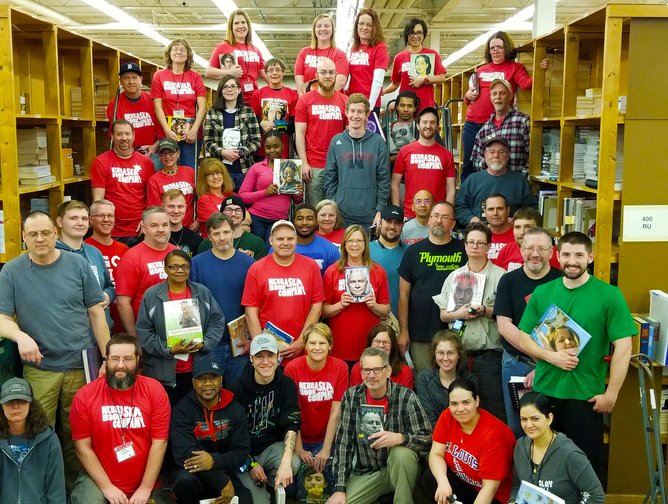
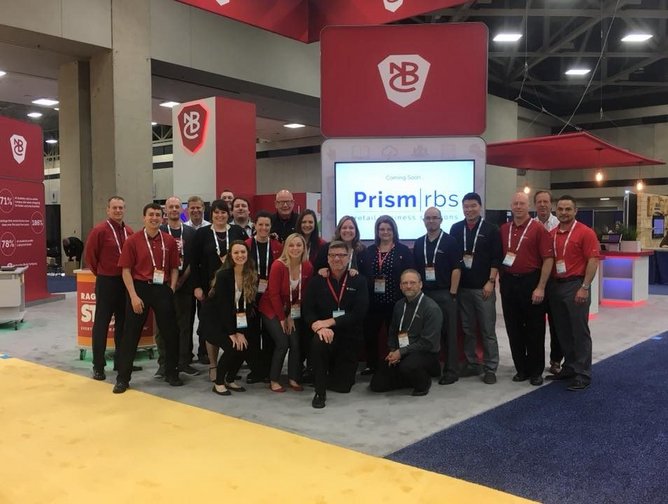
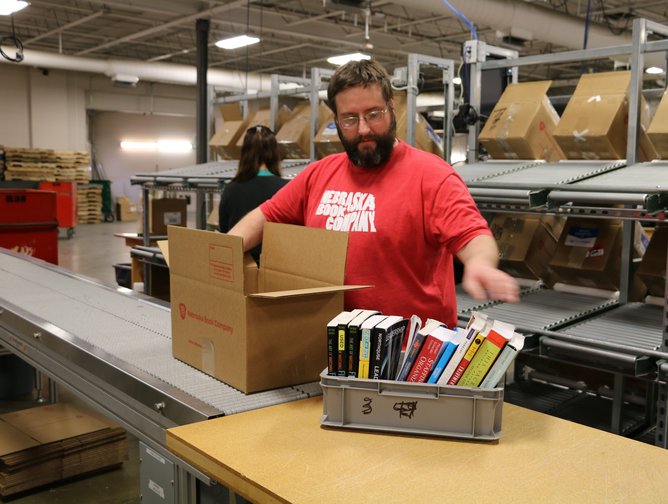
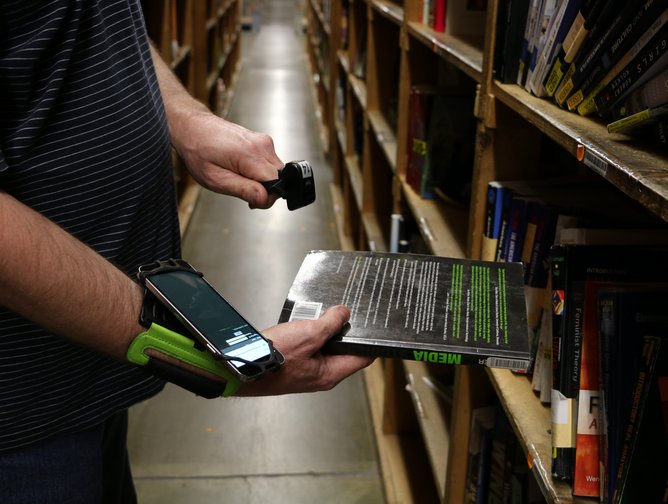
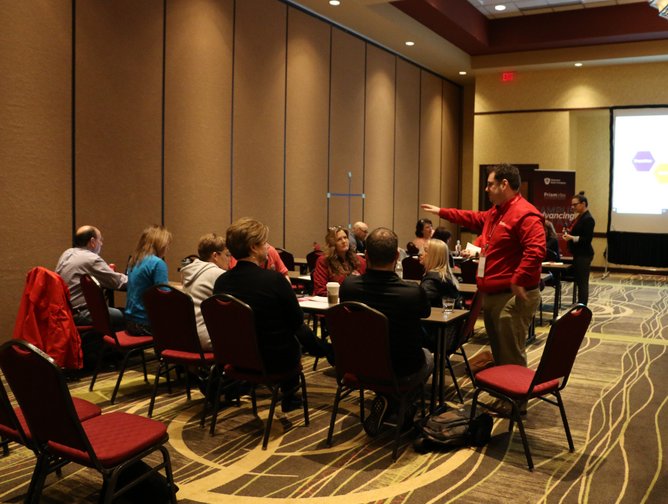
- WATCH: Ivalua and PwC Navigate the Future of ProcurementProcurement
- What is the IATA Digitalization Leadership Charter?Digital Supply Chain
- SAP: US, UK & India elections 'will impact supply chain'Technology
- US Invests $5bn in R&D to build homegrown AI chips supplySupply Chain Risk Management

